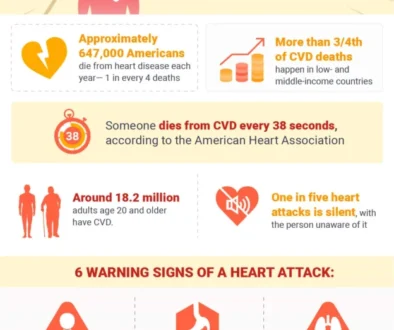Total Body Effects of Exercise
By Aparna Mele, MD

Exercise has widespread and far-reaching effects on the body, and not just in the ways you think. You may be aiming for that six pack or getting to your goal weight, but focusing on these appearance-based measures can actually be defeating and self-sabotaging. A study published in the Journal of Health Psychology suggests that appearance-focused or body-shaming motivation tactics are, in actuality, emotionally harmful. Results showed that the stronger the stigma that a group of college-aged women felt about their weight, the more they dreaded exercising, and the less they actually worked out. Every time you exercise to try to change your body, this study suggests you will enjoy exercising less. And exercise is good for you in so many ways! Instead, it is far more beneficial and motivating to appreciate some of the non-visual benefits that exercise has on the body.
Exercise has you feeling sore from muscle trauma that the body then repairs and rebuilds to help with muscle growth. This results in stronger muscles and increased diameter of muscle fibers. You increase the number of mitochondria in your cells, which makes your body more efficient at producing energy quickly. The more you exercise, the easier it becomes and the better the body gets at exercise recovery. As your body gets more practice in repairing muscles, the less muscle damage that occurs.
It creates a significant boost in energy levels, despite the energy you expend when you work out, and stimulates the release of endorphins, natural cannabis-like brain chemicals associated with feelings of well-being and happiness. Exercise leads to hormonal alterations that can increase metabolism and release stress. A study in published in the International Journal of Neuropsychopharmacology showed that running was associated with an increase in cell growth in the area of the brain associated with learning and memory. Further research has shown that exercise increases the activity of a compound called brain-derived neurotrophic factor (BDNF), which helps improve brain function and communication between cells, and may help prevent cognitive decline associated with aging. It improves the duration and quality of sleep.
The more often you do cardiovascular exercise, the better your heart gets at trying to keep up. The left ventricle enlarges over time and as a result, the heart becomes more efficient at circulating blood through the body, meaning that it has to perform fewer contractions to move the same blood supply. Therefore, your resting heart rate — the rate your heart beats when you aren’t exercising — decreases. Because your heart beats fewer times, it doesn’t have to undergo as much strain. Researchers believe that this effect is part of what makes cardiovascular exercise so good for your heart health in the long-term. Cardio and strength training also positively affect the blood supply and circulatory system. Cardio triggers the production of more blood vessels, while strength training makes those blood vessels wider. Both effects can help to keep blood pressure down in the long term.
Exercise has many psychological and emotional benefits too. It can take your mind off your worries so you can stop fixating on negativity and is a healthy coping strategy. Meeting exercise goals or challenges, even small ones, can boost your self-confidence. Getting in shape can also make you feel better about your appearance.
When embarking on an exercise regimen, while having physical appearance goals is certainly understandable, it is more far-reaching to focus on the internal benefits of exercise the body. As we endorse and advocate here at My Gut Instinct, cultivate your INNER BEAUTY, and your outside beauty will follow!!



